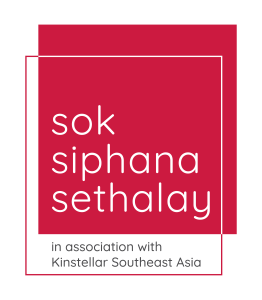On 21 September 2018, the Ministry of Labour and Vocational Training (“MLVT”) issued two new Prakas (Ministerial Proclamation): (i) Prakas No. 442, which establishes a new requirement to pay employees monthly wage instalments twice a month; and (ii) Prakas No. 443, which relates to the introduction of seniority payments.
Prakas No. 442: Monthly wages to be paid in two installments
According to Prakas No. 442, commencing from 2019 onwards, all owners of enterprises or establishments that are covered under the provision of the Cambodian Labour Law shall pay monthly wages in two installments per month to their employees.
- First payment: Employees will receive half of their wage in the second week of each month; and
- Second payment: The remaining half shall be paid together with any other applicable incentives and bonuses, within the fourth week of each month.
Prakas No. 443: Introduction to seniority payments
Additionally, under Prakas No. 443, from 2019 onwards, all enterprises are required to provide ongoing seniority payments to their employees whose contract is deemed as an undetermined duration contract under the Labour Law. This replaces the previous ‘severance payment’ requirements.
- Applicability of seniority payments
A seniority payment is only applicable to an employee with an undetermined duration contract.
An employee with a fixed duration contract is not entitled to a seniority payment, but is instead entitled to a severance payment at the end of the duration of their employment contract. At the expiration date of a fixed duration contract, workers employed under such contracts are entitled to severance pay which is proportional to both their wage and length of their employment contract and as stated in the collective agreement. If the employment contract or collective agreement does not stipulate such information, the severance pay shall be equal to at least 5% of the wages paid during the length of the contract.
- Amount and timing of seniority payments to employees
Under Prakas 443, employers shall adhere to the following requirements:
- Seniority Payment: From 2019 onwards, employers shall provide employees with a yearly seniority payment equal to 15 days’ worth of their wages and other benefits. Employers must pay the following annual seniority payment in two installments:
- The first installment (7.5 days wage) is to be paid in June each year; and
- The second installment (7.5 days wage) is to be paid in December.
- Accrued Seniority Payment: Employers are also required to pay accrued seniority payments to employees who have worked for the enterprises/establishments prior to 2019. If employees were employed prior to 1 January 2019 and continue to be employees from 2019 onwards, employers shall pay them accrued seniority payments according to the following schedule with effect from 1 January 2019:
- In textile, garment, and footwear enterprises, the employer shall pay the employee 30 days of salary annually:
- 15 days salary to be paid in June; and
- 15 days salary to be paid in December.
- For other enterprises or establishments, the employer shall pay back 15 days salary for each year:
- 7.5 days salary to be paid in June each year; and
- 7.5 days salary to be paid in December each year.
- In textile, garment, and footwear enterprises, the employer shall pay the employee 30 days of salary annually:
Accrued seniority payments are based on salary only and not bonuses and other benefits.
Pursuant to Prakas 443, the total accrued seniority payment made to each employee shall not exceed 6 months.
- Circumstances where seniority payment does not apply
Based on the recent Labour Law amendment, employees who have been dismissed due to serious misconduct shall not be entitled to seniority payments, whereas under Prakas 443, workers who have resigned shall not be entitled to receive their remaining portion of the accrued seniority payment from previous years.
If you have any questions or require any additional information, please contact Matthew Rendall, Phirum Ol or the ZICO Law partner you usually deal with.
This alert is for general information only and is not a substitute for legal advice.




